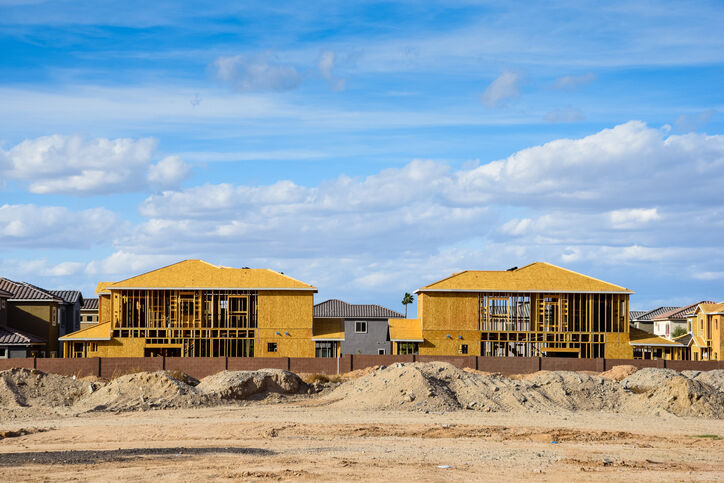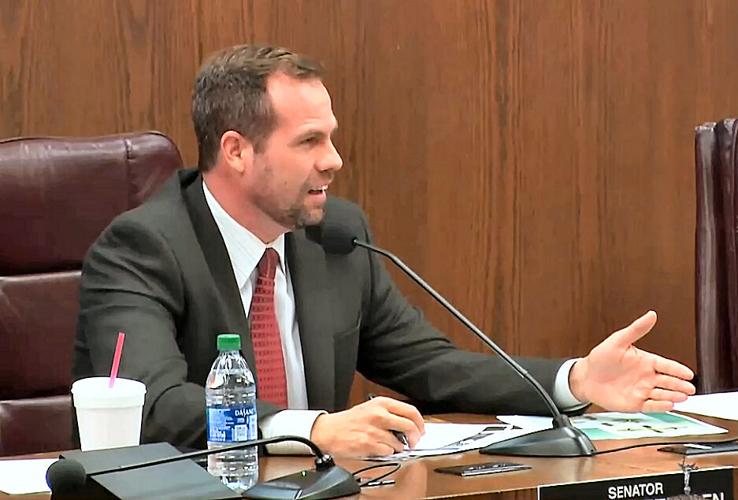PHOENIX — Arizona’s Senate president said he does not plan to introduce legislation to alter water supply requirements for new development despite his criticism of the historic 1980 law that created them.
Sen. Warren Petersen said his comments, given last week to the Arizona Tax Research Association where he was asked to preview his legislative priorities, were meant to emphasize that the mandate to show an assured source of water will be available for 100 years was “arbitrary.’’
“Why not 95?” he asked. “Why not the same as California?,” which he said requires only a 25-year supply.

Sen. Warren Petersen
He complained about the Arizona Department of Water Resources halting new construction in two areas on the edges of Phoenix earlier this year. He said that would not have happened if the standard here were something less, like California’s.
“We could say we’ll go five years or 10 years higher than anybody in the whole nation,’’ Petersen said, meaning a 30- or 35-year supply mandate, since he said California’s 25-year rule is second-highest behind Arizona’s. And with that as the standard and new “modeling’’ of available supply, he said, “there’s suddenly a boat-load of water for housing.’’
By extension, that would eliminate the bar on development in areas of Queen Creek and Buckeye.
But Petersen said despite his criticism of the law and its affect on housing availability he is not seeking to change the law but to make the point that the focus on — and regulation of — the amount of water needed for residential development ignores a bigger issue.
“People don’t realize that housing is a small piece of the pie,’’ said Petersen, a Gilbert Republican.
The Arizona Department of Water Resources says about 20% of the state’s water supply is for municipal use, most of that for residential. The lion’s share of what’s left goes for agriculture, with the balance for industrial uses.
Yet Petersen said the attention on conservation has largely been on new homes.
“Our focus needs to be on the big piece of the pie for solutions,’’ he said. Housing already is “regulated to the hilt and conserving well,’’ he said.
As for agriculture, “Why isn’t there a 100-year water supply on them?’’ he asked.
Petersen had no answer for how the state might get agriculture to give up some of the water farmers are claiming and using, however.
He said that is being addressed by Sen. Sine Kerr, R-Buckeye. She chairs the Senate Committee on Natural Resource, Energy and Water. She also is a dairy farmer.
“She’s got 20 common-sense things that can deal with the piece of the pie that is the largest — and, by far, really where we need to be talking,’’ Petersen said.
Kerr did not respond to repeat messages seeking specifics.
Leaving aside his feelings on the mandate of a 100-year assured water supply, Petersen said he sees no reason to revisit requirements on residential development.
“Housing, we are doing a fantastic job,’’ Petersen said, saying today’s 7.5 million Arizonans are using the same amount of water as the 1.5 million people who were here in 1963.
“Most of it has been the housing industry has adopted water-saving toilets’’ and similar devices, he said. There also are requirements for xeriscaping with drought-tolerant plants.
Petersen’s suggestion the state could rein in agricultural use, especially in rural areas, could prove more difficult. In fact, when Democratic Gov. Katie Hobbs’ Water Council began talking this year about regulating agricultural use, two members quit: Kerr and Stefanie Smallhouse, president of the Arizona Farm Bureau.
“The Governor’s Water Policy Council is nothing more than a forum to rubber stamp the progressive environmental goals of special interest groups,’’ Kerr said at the time. “The radical agenda being pushed as the potential to damage our economy and kill the livelihoods of our farmers and ranchers.’’
There may be some movement in the commercial and industrial sector, however.
Rep. Gail Griffin, R-Hereford, already introduced legislation for the 2024 legislative session. It would require the Department of Water Resources to adopt rules for those users “that provide for greater water efficiency, conservation and on-site waster reuse and recycling.’’
But it also spells out that these rules may not require such a user to obtain a certificate of assured water supply — the kind now necessary for new residential development.
The bottom line, said Petersen, is to look beyond residential use when finding ways to conserve.
“We should never be talking about limiting or stopping home construction,’’ he said. “That is a tiny little sliver of the water supply. And we have to be able to continue to grow.’’
Petersen acknowledged that the idea of a 100-year supply predates the 1980 Groundwater Act and its mandate within the state’s active management areas, urban areas including the Phoenix and Tucson areas.
It originated nearly a decade earlier when lawmakers sought to deal with land fraud, with unsuspecting buyers being sold property that had no access to water. That resulted in laws saying buyers must be told if there is an “adequate’’ supply of water, defined as enough for 100 years.
Only later was that incorporated into the “assured’’ supply mandate for active management areas.
But the looser disclosure requirement still is the law in most rural areas of the state. And they do not preclude a sale even if the 100-year supply is not there.
“Makes people hate developers,’’ Petersen said of the fraud that led to the laws. “Bad people ruin it for everyone.’’
Get your morning recap of today's local news and read the full stories here: tucne.ws/morning





